Looking back on an inspiring ECAS 2025
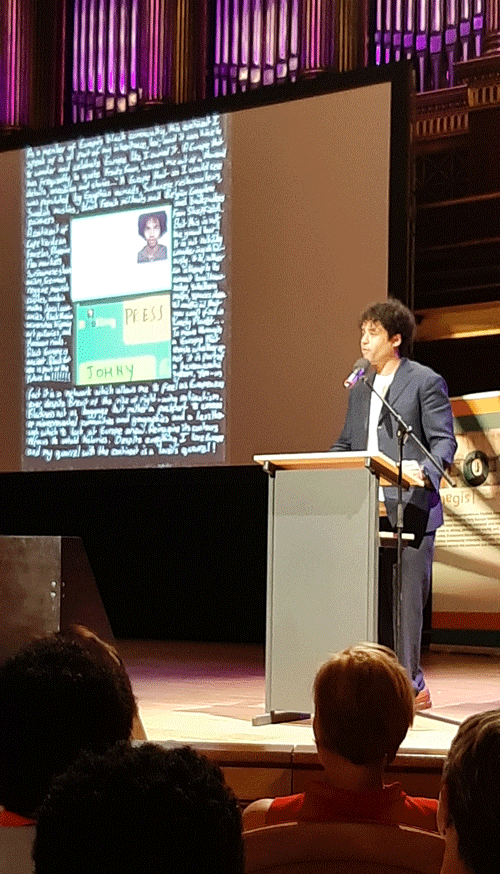 After four days of exchanging knowledge, networking, and gathering new ideas at the 10th European Conference on African Studies (ECAS, 25-28 June), the ASCL delegation left Prague more than inspired.
After four days of exchanging knowledge, networking, and gathering new ideas at the 10th European Conference on African Studies (ECAS, 25-28 June), the ASCL delegation left Prague more than inspired.
As a global gathering of scholars researching African realities, ECAS 2025 aimed to engage with the theme of African, Afropolitan and Afropean forms of belonging and positioning. This theme powerfully resounded in the opening speech by Johnny Pitts, writer, photographer and artist who investigates questions of home and belonging in a globalised world. In his award-winning book Afropean: Notes from Black Europe he brings together 15 years of on the ground travels in photography, writing and research about the lives of Black communities throughout Europe, of which he shared examples for a full house.
Opening up informal literatures
A large delegation of ASCL researchers joined ECAS and demonstrated the societal relevance of their work. Already on the day before ECAS started, the European Librarians in African Studies (ELIAS) held their Annual Meeting, entitled 'African collections: from collecting to sharing and repatriating' (read the report!). Here, information specialist Ursula Oberst (ASCL Library) and Ashleigh Harris (Uppsala University) presented the African Literary Metadata project ALMEDA - an ambitious initiative to make African oral and informal literatures accessible and better findable through a multilingual, linked open data platform.
Knowledge co-creation and exchange
This opening up of multiple sources reverberated in Madi Ditmars’ talk in a panel about advancing epistemic plurality in higher education. She highlighted the VOICE programme - Virtual Online International Collaborative Exchange - which the ASCL has co-initiated, as an example of equitable knowledge co-creation and exchange. VOICE was offered for the first time in 2023 with three EU, one UK and three African universities. ‘It embraces the richness of multiple indigenous knowledge systems', said Ditmars.
Zooming in on higher education in South Africa, Ditmars said that ten years after the #RhodesMustFall debate took off, the current South African government lacks a cohesive national strategy for meaningful transformation; instead, it prioritises market-driven curriculum development.
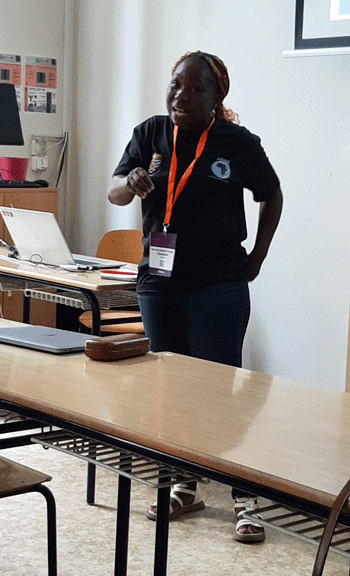 Religion and sexuality
Religion and sexuality
South Africa was also a subject of focus during a panel convened by Rijk van Dijk on the polemics of religion and sexuality. A historical exploration of queer activism at South African Stellenbosch University (SU) - historically seen as a conservative institution - was given by Jesse B. Le Roux (MA student at SU). Understanding the development of queer activism at Stellenbosch campus helps to understand social change in post-apartheid South Africa, Le Roux said.
In the same panel, Eva Seraphim Tandoh Quansah (University of Cape Coast, Ghana) shed light on the Trokosi (literally: ‘female slave of a god’) system, a traditional, religiously sanctioned practice in Ghana that enforces ritual servitude upon young girls. Tandoh Quansah made clear the predicament of these girls and the confining use of social media, that are controlled by the priests in this practice.
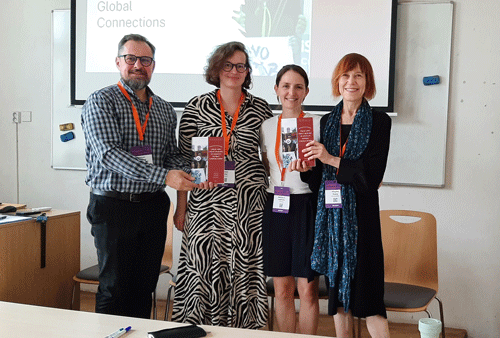 Trust and Africans’ global relations
Trust and Africans’ global relations
Pairing Africans’ global relations to local experiences, Mayke Kaag and her co-editors István Tarrósy and Alena Thiel launched the book Trust and Trust-Making in Africa’s Global Connections at ECAS. They illustrated how trust and trust-making shape global encounters, from Chinese manufacturers selling in Ghanaian markets, to Senegalese and Moroccon communities navigating Amsterdam, and the - erosive - impact that some transnational NGOs have on local social structure in Burkina Faso.
‘The Holy Grail’ and ‘The New Gold’
Similarly illustrative of how global developments have local consequences, Eric Cezne gave presentations on green hydrogen (GH2), which is seen as ‘The Holy Grail’ for the Green Transition, and for which Africa is worldwide in the spotlight. African countries hope to attract investments, generate export revenues, and build key infrastructures. But concerns arise around patterns of green-extractivism and energy-colonialism. Cezne considered their impact on the socio-economic development of local communities and their energy justice, and offered a framework for more research into hydrogen's deployment in Africa.
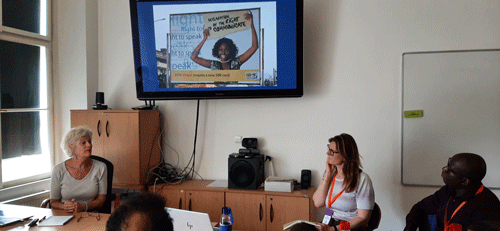 Mirjam de Bruijn focused on ICTs as a resource in themselves. She calls this the Scramble for Digital Africa, referring to ICTs as ‘The New Gold’. With Meta's Free Basics, which offers free basic internet to populations in poorer regions, big companies control their users as well, she argued. Having researched conflicts in the Sahel for decades, De Bruijn sees a correlation between ‘conflicts and clicks’, ‘social media thrive on conflicts’, she said.
Mirjam de Bruijn focused on ICTs as a resource in themselves. She calls this the Scramble for Digital Africa, referring to ICTs as ‘The New Gold’. With Meta's Free Basics, which offers free basic internet to populations in poorer regions, big companies control their users as well, she argued. Having researched conflicts in the Sahel for decades, De Bruijn sees a correlation between ‘conflicts and clicks’, ‘social media thrive on conflicts’, she said.
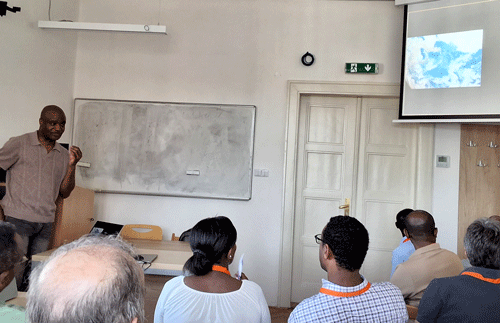 Politics and demography
Politics and demography
Jon Abbink convened a panel about the dynamics between politics and demography, where Abbink himself offered insight into the link between politics and imbalanced strong youthful age structures in Ethiopia and Sudan. These countries have both seen mass popular protests in recent years. He argued that, in addition to blocked democratisation, mal-governance and economic inequalities, features of the demographic structure in both countries are relevant for assessing the socio-political change process. Those features are: a broad-base (youthful) population pyramid, a low median age, and a high ‘dependency ratio’. In the same panel, Akinyinka Akinyoade explained how local and international political dynamics contribute to the twists and turns in Nigeria's (always contested) national population censuses.
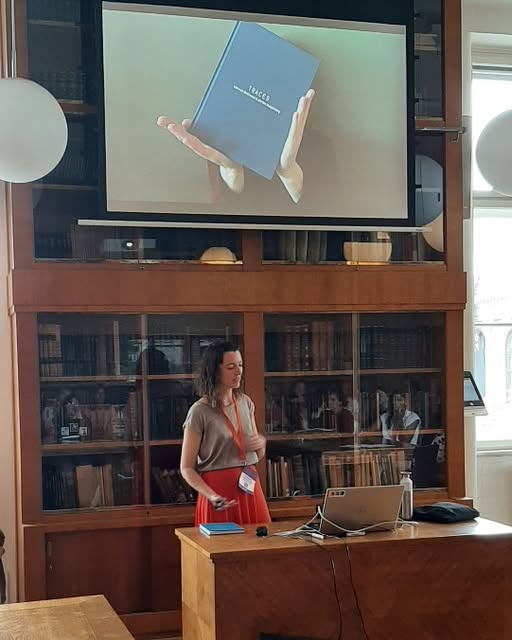 Traces and belonging
Traces and belonging
Lidewyde Berckmoes discussed how Burundi has recently started integrating mental health in primary care, engaging more actors in mental health care - a much needed development in a country where political, economic, climate, and social wounds affect mental health issues.
She also presented TRACES, a photo-ethnographic project with photographer Marieke Maagdenberg, exploring the traces of the war in Burundi by portraying young people of Burundian heritage in Belgium and the Netherlands. The book that is part of the project reveals how war reverberates across time and space: in people, places and through ‘war repertoires’. However, the young people at the heart of this photo-ethnography show how their traces also make for new ways of belonging and connectedness.
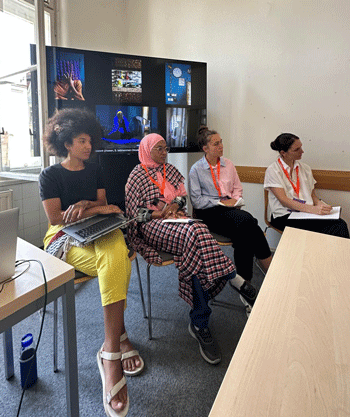 On the last day of the conference, Esma Karadag, Rishuai Chen, Mayke Kaag and Chong Zhang chaired a panel in which African fieldwork encounters were explored. What does it mean to be both ‘inside’ and ‘outside’ the communities you as a researcher study? Sometimes you may be regarded as ‘different’ because of your name, accent, colour, or gender, making trust harder to build. But sometimes that very outsider status helps open up conversations that wouldn’t happen otherwise. During this panel the emotional and ethical layers of fieldwork, and how these shape the knowledge we produce, were unpacked.
On the last day of the conference, Esma Karadag, Rishuai Chen, Mayke Kaag and Chong Zhang chaired a panel in which African fieldwork encounters were explored. What does it mean to be both ‘inside’ and ‘outside’ the communities you as a researcher study? Sometimes you may be regarded as ‘different’ because of your name, accent, colour, or gender, making trust harder to build. But sometimes that very outsider status helps open up conversations that wouldn’t happen otherwise. During this panel the emotional and ethical layers of fieldwork, and how these shape the knowledge we produce, were unpacked.
A big thank you to the Czech Association for African Studies for organising a mind-blowing conference!

